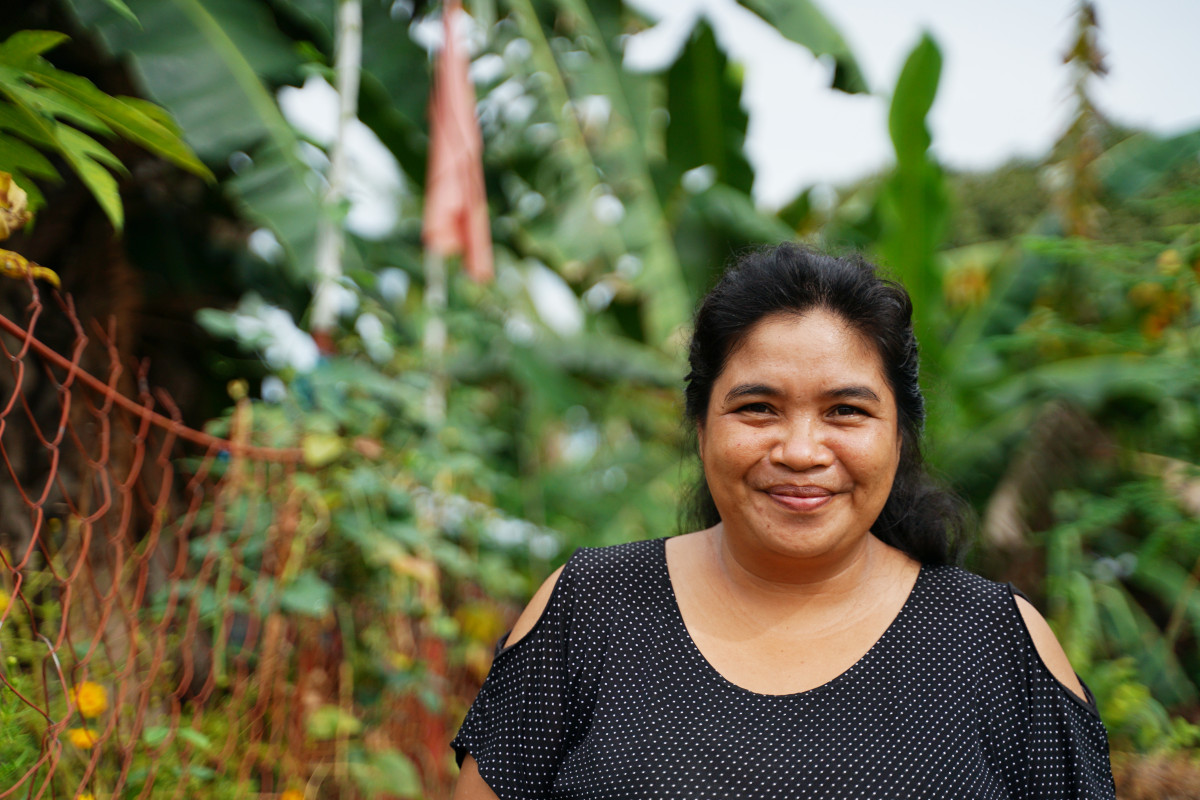Cassava farmers double income after typhoon devastates farm
Published: Oct 9, 2019 Reading time: 4 minutes Share: Share an articleFor decades, Raquel Ausa has worked the land, following in the footsteps of her parents and grandparents by growing copra – coconut kernels that are turned into oil and animal feed. Like many farmers in Eastern Samar, Raquel had limited access to modern farming techniques, and relied on the knowledge gained from ancestors and neighbors to turn a profit.

It was a simple approach to making ends meet. Nonetheless, despite never having finished high school, Raquel and her husband earned enough money on their farm to buy food, to pay for expenses, and to send their three children to school. They were far from rich, but they were surviving.
Typhoon left just empty land
Then, in late 2013, tragedy struck.
Everything changed when Typhoon Haiyan devastated the province, wiping out the region’s coconut plantations. In the storm’s wake, farmers like Raquel were left with little more than barren land. While many farmers quickly replanted, it takes coconut trees 15 years or longer to reach peak production, meaning farmers had to find other sources of income. For Raquel, the most promising alternative crops were cassava and banana, but these new crops brought new problems – some mundane, others far more threatening.
Connecting farmers to markets
A common struggle for farmers of alternative crops is marketing and selling their produce at a fair price. In 2013, there were so many coconut farmers turning to bananas and cassavas that they produced a glut of these crops on the market. As a result, Raquel’s farm was forced to sell their new harvest at lower-than-expected prices, a slash in profits that drastically hurt their bottom line. Consequently, they had to limit production and ask their children to stop going to school.
Then, in 2016, Raquel and her husband caught a break. Together with other farmers from the Giporlos region, they received training on banana production through the Enhancing Sustainable Income in the Philippines (ESIP) project, a program funded by Swiss Solidarity and administered by People in Need and Helvetas, an Alliance2015 partner. The ESIP project also facilitated a partnership with Ailyn Declaro, a local service provider, who agreed to buy produce regularly and at a fair price.
The ESIP project later engaged the services of Balangkayan Agriculture Cooperative (BACO) to train farmers like Raquel and her husband on cassava production, pest management and financial literacy. Farmers also received modern equipment, including drying nets and scales, and BACO members were given organic fertilizer, seeds and access to financing. Most importantly, a supply agreement between BACO and the local cassava farmers was facilitated to ensure a regular buyer for the growers’ produce.
Raquel says the supply agreement with BACO was key, as it guaranteed a regular buyer for their cassava. “Since 2017 up to now, we have not had problems on where and to whom we are going to sell our farm produce,” she says. “BACO is very accessible; we can call them whenever we harvest and they will immediately send a truck to pick up our crops, saving us transport costs. There is also no limit to the amount of produce they buy; the more, the better.”
I learned how to manage my money
Since their interaction with ESIP, Raquel and her husband have been able to expand operations, growing their farm to five hectares – including two hectares devoted entirely to cassava – and doubling their income per harvest. Best of all, thanks to BACO’s financial services – such as crop insurance, and savings and loans programs – they are better prepared for the next time an emergency or disaster strikes.
“Through these services, especially on financial literacy, I learned how to manage my money well. I used to be an impulsive buyer whenever I’d receive payment for our farm produce. But now, I'd compute our cash-flow, and know how much money comes in and goes out,” explains Raquel.
___
The Enhancing Sustainable Income in the Philippines (ESIP) project is jointly implemented by People in Need and Helvetas and funded by Swiss Solidarity. Its goal is to increase the income and improve the resilience of poor and vulnerable farmers from Eastern Samar Province .



